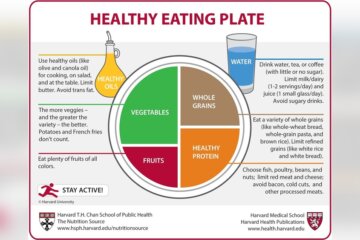Yes, some supplements should not be taken together. For instance, calcium can interfere with the absorption of iron.
Understanding which supplements interact is crucial for maintaining optimal health. Certain combinations can lead to reduced effectiveness or even adverse effects. For example, taking calcium and iron simultaneously can hinder the absorption of both. It’s also important to consider the timing of your supplements.
Fat-soluble vitamins like A, D, E, and K are best taken with meals, while others might be more effective on an empty stomach. Always consult a healthcare professional before starting any new supplement regimen to ensure safe and effective use. Proper guidance can help you maximize the benefits while avoiding potential risks.

The Importance Of Supplement Safety
Taking supplements can benefit your health. Yet, not all supplements are safe to take together. It’s crucial to understand the importance of supplement safety to avoid any harmful interactions. Knowing which supplements can and cannot be combined helps maintain your health and well-being.
Common Misconceptions
Many people believe all supplements are safe. This is not true. Some combinations can cause adverse effects.
- Calcium and Iron: Taking these together can reduce absorption.
- Vitamin E and Vitamin K: These can interfere with blood clotting.
- St. John’s Wort and Antidepressants: This can lead to serotonin syndrome.
Always consult with a healthcare provider before combining supplements.
Real Health Risks
Taking incompatible supplements can lead to serious health risks. These risks range from minor issues to severe health problems.
| Supplement Combination | Potential Risk |
|---|---|
| Calcium and Magnesium | Reduced absorption of both minerals |
| Vitamin C and Vitamin B12 | Decreased effectiveness of Vitamin B12 |
| Fish Oil and Ginkgo Biloba | Increased risk of bleeding |
Pay attention to how supplements interact with each other. This helps you avoid serious health issues.
Interactions Between Supplements
Not all supplements are safe to take together. Some can interfere with each other. This can affect how your body absorbs nutrients. Understanding these interactions can help you stay healthy.
Nutrient Absorption Competition
Some supplements compete for absorption. For example, calcium and iron can clash. If you take them together, your body might not absorb both well.
Calcium can block iron from being absorbed in the gut. This can make iron less effective.
- Take calcium and iron at different times.
- Consider morning and evening doses.
Another example is zinc and copper. High doses of zinc can reduce copper absorption. Make sure to balance these minerals.
Synergistic Effects
Some supplements work better when taken together. This is called a synergistic effect. It can enhance the benefits of both supplements.
For instance, Vitamin D helps your body absorb calcium. Taking them together can improve bone health.
- Combine Vitamin D and calcium for stronger bones.
- Look for supplements that include both.
Another example is Vitamin C and iron. Vitamin C can boost iron absorption. This can help prevent iron deficiency.
| Supplement Pair | Effect |
|---|---|
| Calcium & Iron | Reduced iron absorption |
| Zinc & Copper | Reduced copper absorption |
| Vitamin D & Calcium | Improved bone health |
| Vitamin C & Iron | Enhanced iron absorption |
Supplements And Medication Interactions
Many people take supplements to boost their health. But, some supplements can interact with medications. These interactions can cause serious problems. It’s important to know which supplements and medications don’t mix well.
Blood Thinners And Vitamin K
Blood thinners help prevent blood clots. Vitamin K helps blood clot. Taking them together can reduce the effect of blood thinners. This can increase the risk of clots. If you are on blood thinners, be careful with Vitamin K.
| Blood Thinner | Effect | Vitamin K Source |
|---|---|---|
| Warfarin | Reduced effectiveness | Green leafy vegetables |
| Heparin | Reduced effectiveness | Broccoli, spinach |
Antidepressants And St. John’s Wort
St. John’s Wort is a popular supplement for mood. But, it can interact with antidepressants. This can cause a dangerous condition called serotonin syndrome. Symptoms include confusion, muscle stiffness, and high blood pressure. Avoid St. John’s Wort if you take antidepressants.
- SSRIs (Selective Serotonin Reuptake Inhibitors): Increased risk of serotonin syndrome.
- SNRIs (Serotonin-Norepinephrine Reuptake Inhibitors): Increased risk of serotonin syndrome.
Always consult with your doctor before combining supplements with medications. Your health should always come first.
Fat-soluble Vitamins: A Balancing Act
Fat-soluble vitamins are crucial for overall health. These include Vitamins A, D, E, and K. They dissolve in fats and oils. This means your body stores them in fatty tissues and the liver. But, taking too much can lead to toxicity. Understanding how to balance these vitamins is key to maintaining good health.
Vitamin A Toxicity
Vitamin A is vital for vision and immune function. But too much can cause Vitamin A toxicity. Symptoms include dizziness, nausea, and even liver damage. High doses can also lead to serious complications. It’s important to monitor your intake.
| Source | Safe Limits |
|---|---|
| Animal liver | Once a week |
| Supplements | Not more than 10,000 IU/day |
Vitamin D And Calcium Overlap
Vitamin D helps your body absorb calcium. This strengthens your bones. But too much Vitamin D can cause high calcium levels. This condition is called hypercalcemia. It can lead to kidney stones, heart problems, and bone pain.
- Ensure balanced intake
- Monitor calcium-rich foods
- Consult a healthcare provider
Balancing fat-soluble vitamins is crucial for good health. Always read labels and follow recommended doses. Your body will thank you!
Minerals That Clash
Our bodies need minerals to function well. But some minerals don’t get along. Taking certain minerals together can reduce their benefits. Let’s explore these clashes.
Iron Vs. Zinc
Iron and zinc are both crucial for our health. Iron helps our blood carry oxygen. Zinc boosts our immune system. But they compete for absorption in our intestines.
When taken together, the body might absorb less of each. This can lead to deficiencies over time.
To avoid this clash:
- Take iron and zinc supplements at different times of the day.
- Consume iron with vitamin C to improve absorption.
- Make sure your diet includes foods rich in both minerals.
Calcium And Magnesium
Calcium and magnesium are vital for bone health. Calcium strengthens bones. Magnesium supports muscle function. But they can interfere with each other’s absorption.
High doses of calcium can block magnesium absorption. This can lead to magnesium deficiency.
To balance calcium and magnesium:
- Take calcium and magnesium at different times.
- Include foods rich in both minerals in your diet.
- Consider supplements that have a balanced ratio of calcium and magnesium.
| Mineral | Function | Absorption Tip |
|---|---|---|
| Iron | Helps blood carry oxygen | Take with vitamin C |
| Zinc | Boosts immune system | Take separately from iron |
| Calcium | Strengthens bones | Take separately from magnesium |
| Magnesium | Supports muscle function | Take separately from calcium |

Herbal Supplements: Proceed With Caution
Herbal supplements are popular for their natural benefits. But they can interact with medications. These interactions can cause unexpected side effects. It’s important to know which supplements to avoid combining.
Ginkgo Biloba And Blood Pressure Meds
Ginkgo Biloba is used to improve memory and circulation. But it can interact with blood pressure medications. This interaction can cause blood pressure to drop too low. Symptoms can include dizziness and fainting.
Why the Interaction Happens:
- Ginkgo Biloba can thin the blood.
- Blood pressure meds also affect blood flow.
What to Do:
- Consult your doctor before taking Ginkgo Biloba.
- Monitor your blood pressure regularly.
Echinacea And Immune Suppressants
Echinacea is known for boosting the immune system. But it can counteract immune suppressants. This makes these medications less effective.
Why the Interaction Happens:
- Echinacea stimulates the immune system.
- Immune suppressants reduce immune activity.
What to Do:
- Discuss with your healthcare provider before using Echinacea.
- Avoid Echinacea if you are on immune suppressants.
The Role Of Professional Guidance
Navigating the world of supplements can be tricky. Professional guidance is vital to ensure you take the right ones.
Some supplements can interact negatively with each other. This can lead to side effects or reduced effectiveness.
Consulting a healthcare provider is a crucial step.
Consulting A Healthcare Provider
Always consult a healthcare provider before starting new supplements. They have the knowledge to guide you.
They consider your medical history, current medications, and health goals. This helps in preventing harmful interactions.
A healthcare provider can also recommend the right dosage.
Personalized Supplement Plans
Personalized supplement plans are tailored to your unique needs. A healthcare provider can create a plan just for you.
This plan will ensure you get the benefits without the risks.
Here is a simple example of what a personalized plan might consider:
| Supplement | Dosage | Timing | Notes |
|---|---|---|---|
| Vitamin D | 1000 IU | Morning | Take with food |
| Magnesium | 200 mg | Evening | Helps with sleep |
A healthcare provider can adjust these based on your response. Regular check-ins help track progress and make necessary changes.
Creating A Safe Supplement Routine
Taking supplements can boost your health. But you must be careful. Some supplements can clash with each other. You need to know how to take them safely. This section will help you create a safe supplement routine.
Timing And Dosage
Timing and dosage are key. You must take the right amount at the right time. Too much of a supplement can cause harm. Too little may not help. Follow the instructions on the label. If unsure, ask a healthcare professional.
Here is a simple table for better understanding:
| Supplement | Recommended Dosage | Best Time to Take |
|---|---|---|
| Vitamin D | 1000 IU | Morning |
| Calcium | 500 mg | Evening |
| Iron | 18 mg | Empty stomach |
Monitoring Your Body’s Response
Always monitor your body’s response to supplements. Watch for any side effects. Common side effects include stomach upset and headaches. If you feel unwell, stop the supplement and talk to a doctor.
Keep a journal of what you take. Note the dosage and time. Record any changes in how you feel. This helps you see patterns and identify issues.
Here are some tips to monitor your body’s response:
- Track your mood and energy levels.
- Note any changes in appetite.
- Watch for signs of allergic reactions.
By being careful with timing and dosage, and monitoring your body’s response, you can create a safe supplement routine.
Research And Quality Of Supplements
When considering supplements, understanding their research and quality is crucial. Not all supplements are created equal. Quality and safety can vary greatly. Knowing what to look for can help you make informed decisions.
Understanding Labels
Reading supplement labels can be confusing. Look for key information to ensure quality.
- Active ingredients: The main nutrients or compounds in the supplement.
- Inactive ingredients: Fillers, binders, and other non-active substances.
- Dosage instructions: How much to take and how often.
- Expiration date: Indicates the product’s shelf life.
Labels should also list any potential allergens. Pay attention to these details to avoid adverse reactions.
Third-party Testing
Third-party testing verifies the quality and safety of supplements. Independent labs test products for purity and potency. This ensures that the supplement contains what the label claims.
Look for seals from reputable organizations:
- USP Verified: Ensures the product meets quality standards.
- NSF Certified: Indicates the supplement is free from harmful contaminants.
- ConsumerLab Approved: Confirms the product’s ingredient accuracy.
Choosing supplements with these certifications can offer peace of mind. It ensures you get a safe and effective product.
| Certification | What It Ensures |
|---|---|
| USP Verified | Product meets high-quality standards. |
| NSF Certified | Free from harmful contaminants. |
| ConsumerLab Approved | Ingredient accuracy confirmed. |
When To Reevaluate Your Supplements
Taking supplements can support your health. But sometimes, you need to review what you take. Your health changes over time. This means your supplement needs can change too. Regularly checking your supplements can keep you safe and healthy.
Changes In Health Status
Your health might not stay the same. You might develop new health conditions. Or you might recover from a previous illness. Changes in health status can affect how your body interacts with supplements.
If you start a new medication, check if it interacts with your supplements. Some supplements can interfere with medicines. This could make your medicine less effective. Or it could cause side effects.
| Condition | Supplement to Watch |
|---|---|
| High Blood Pressure | Potassium |
| Heart Disease | Omega-3 Fatty Acids |
| Diabetes | Chromium |
Annual Check-ups
Annual check-ups are a good time to review your supplements. During your check-up, talk to your doctor about all the supplements you take. Your doctor can help you decide if you need to make changes.
Some questions to ask your doctor:
- Are there any supplements I should stop taking?
- Do I need to start any new supplements?
- Are there any interactions between my supplements and medications?
Keeping track of your supplements and health changes ensures you get the best benefits. Regular reviews with your doctor can help you stay on top of your health needs.

Frequently Asked Questions
What Supplements Can And Cannot Be Taken Together?
Vitamin D and calcium can be taken together. Avoid combining calcium with iron, as they compete for absorption. Always consult a healthcare professional for personalized advice.
Is It Ok To Take All Supplements Together?
It’s not always safe to take all supplements together. Some can interact or cause side effects. Consult your doctor.
Which Supplements Not To Take?
Avoid supplements with unverified claims, excess vitamin A, E, or iron without medical advice. Steer clear of ephedra and yohimbe. Always consult a healthcare professional.
Do Any Supplements Interact With Each Other?
Yes, supplements can interact with each other. Consult a healthcare provider before combining supplements to avoid adverse effects.
Conclusion
Understanding supplement interactions is crucial for your health. Always consult with a healthcare professional before combining supplements. This ensures safe and effective use. By being informed, you can avoid potential risks. Prioritize your well-being and make educated choices about your supplement regimen.
Your health is worth the extra effort.

“As the voice behind Radiant Glow Health, we are dedicated to being your ultimate wellness and vitality companion. Our mission is to inspire and guide you on your journey to a healthier and more vibrant life. Join us as we explore holistic health practices and empower you to radiate wellness from within.”



